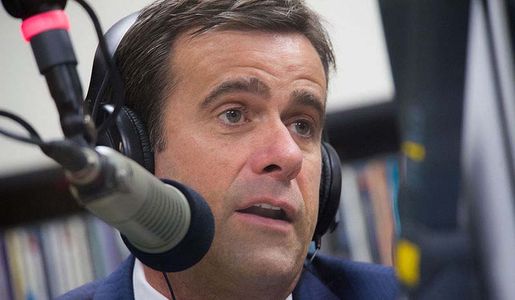Woodward on WGBH on Ratcliffe’s DNI Nomination
John D. Woodward, Jr., Professor of the Practice of International Relations at the Frederick S. Pardee School of Global Studies at Boston University, was interviewed for a recent radio segment on the nomination of Texas Rep. John Ratcliffe to the position of Director of National Intelligence following the news that Dan Coats, the second longest serving Director of National Intelligence, will be stepping down.
Woodward was interviewed for a July 31, 2019 segment on WGBH’s Boston Public Radio entitled “What Does John Ratcliffe’s Nomination Mean For The Intelligence Community?”
From the interview:
During an interview with Boston Public Radio on Wednesday, John Woodward, a former CIA officer and professor at Boston University’s Pardee School of International Relations, said Trump’s characterization of the intelligence community is not ideal.
“If you’re at the working level at the CIA, those aren’t exactly positive comments that make you feel great about the administration that you’re serving,” Woodward said.
Though Ratcliffe has been cause for alarm with intelligence officers like former CIA Director John O. Brennan, Woodward said that he’ll be waiting to hear Ratcliffe’s Senate confirmation hearing before rushing to a judgment. Woodward, however, did express some concerns over Ratcliffe’s political affinity for Trump.
“It’s not what the president wants to hear. It’s what the president needs to hear,” Woodward said. “I think now what we see reflected with concern over the Ratcliffe nomination is that we have a partisan.”
While Woodward is sympathetic to the concerns over Ratcliffe, he also said that the public should not jump to any conclusions. We should wait to see what happens during his hearing and whether or not he’s even confirmed by the Senate, Woodward said.
“[We should] wait and see [what happens],” he said. “Let’s still have faith in the political process.”
Woodward is a former Central Intelligence Agency officer who, during his twenty-year CIA career, served as an operations officer in the Clandestine Service and as a technical intelligence officer in the Directorate of Science and Technology, with assignments in Washington D.C., East Asia, Africa, South Asia, and the Middle East. He also served as the Director of the U.S. Department of Defense Biometrics Management Office from 2003-2005 where he received the Army’s third highest civilian award for his work on using biometric technologies to identify national security threats.
